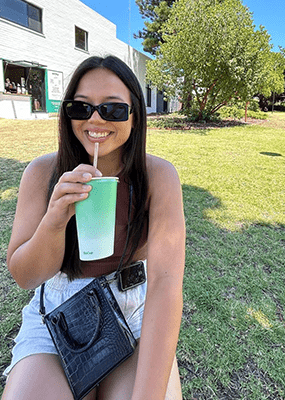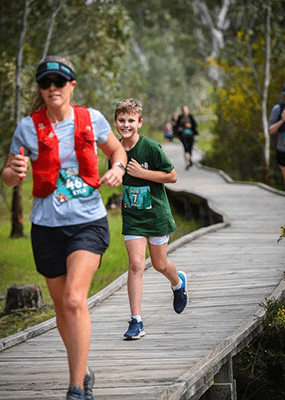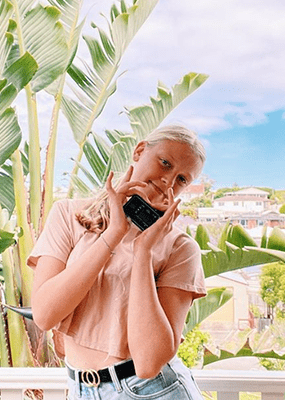Sarah, Netball and Type 1 Diabetes
Meet Sarah
Sarah is one of our longest-running Australian Dexcom Warriors and was diagnosed with type 1 diabetes (T1D) in 2017, however did not let this hold her back – going from strength to strength since then! She is a professional netballer who plays for NSW Swifts and even made her national debut for the Australian Diamonds in 2019! We spoke to Sarah about her netball career, journey with diabetes and how she keeps her levels on track with her active lifestyle.
Q. Can you please tell us a bit about your T1D diagnosis experience?
As a netballer, we are required to get annual medical check-ups, which include blood tests. In early 2017, my results indicated an elevation in my fasting glucose level. The doctor questioned whether I had something sweet before having my tests done – and I had eaten two muesli bars, so the doctor requested more tests and even still, my glucose levels were slightly elevated above the normal range. The diagnosis was unclear at the time and the endocrinologist predicted MODY or type 1B diabetes, so I started on tablets to help manage my blood glucose levels, along with exercise and a lower-carb diet. The dose was increased gradually over the next two years.
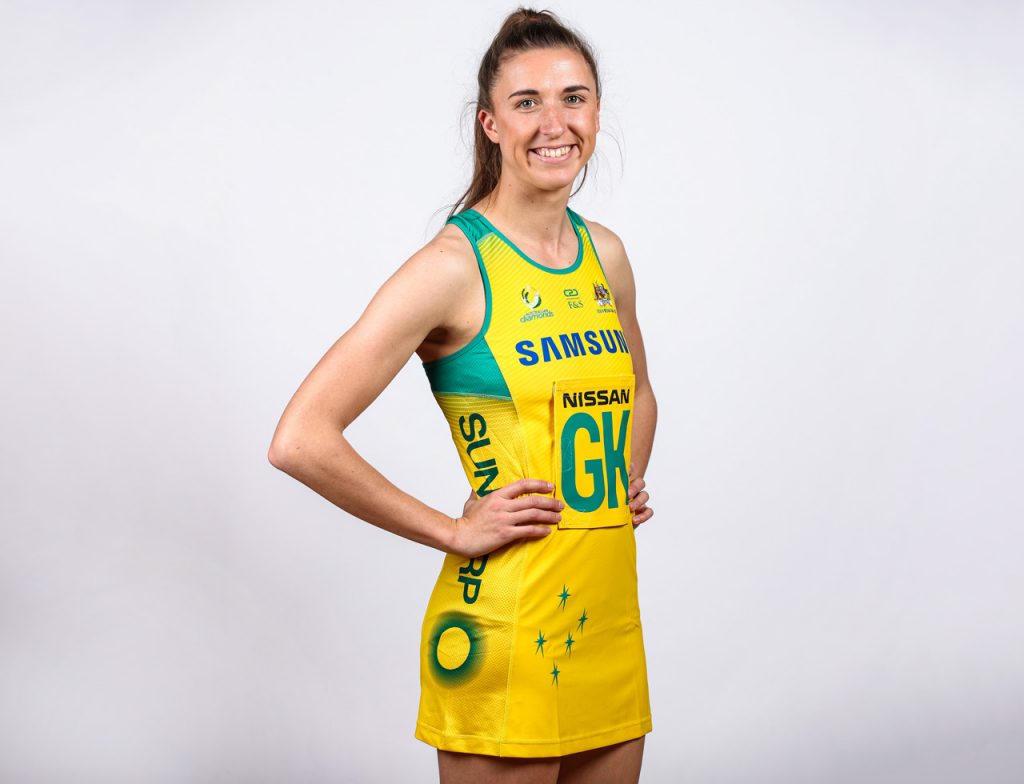
And then in January 2019, I tried CGM. Due to the in-between nature of my condition, I wasn’t strict at checking my levels. The 2 weeks of CGM data highlighted elevated levels (e.g. 11-15 mmol/L after food) and during my endocrinologist appointment, I was officially diagnosed with T1D in February 2019. A few days later, I met with a diabetes educator and commenced an insulin regimen.
Q. Did you always want to play netball professionally?
I was always an active kid and loved my sports growing up. I started playing netball when I was 8 years old. I gradually moved up the ranks and finally made my break and debuted for the Adelaide Thunderbirds in 2016. I then moved to the NSW Swifts in 2017 and still currently play. In 2019, I was also selected in the Australian Diamonds and debuted at the Netball World Cup in Liverpool (UK) and played in the Constellation Cup later that year as well.
As a professional netballer, the training schedule varies and the intensity of the session depends on the time of the year – whether it’s pre-season, in-season or off-season. In-season, we train 5-6 times a week with sessions averaging from 45-120 minutes. These sessions can include on-court sessions (e.g. ball skills, footwork, strategy), weights, conditioning (e.g. running, bike, swimming), yoga, pilates, recovery and the best part, playing!
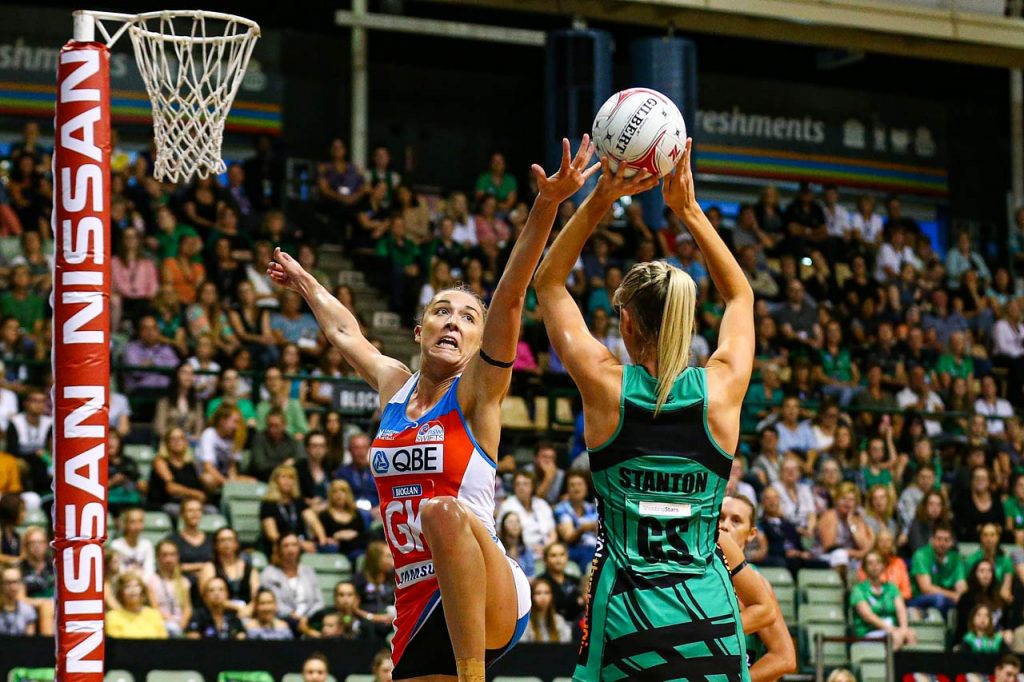
Q. How do you manage your levels when training and competing for netball?
With training and competing, I have lost count of the amount of times Dexcom alerts have assisted me. I have been much more proactive around my levels around training times, as it is so easy to pick up my phone and know what my glucose readings are immediately. I have also found that my insulin sensitivity can change quite a lot depending on the type of training. Before I would hope that my levels were travelling okay and I guess this held a degree of stress, but now I know exactly where I’m at and I check it much more regularly throughout training because it is so convenient.
However my glucose levels are impacted the most on game days when my nerves, adrenaline and stress are elevated. I’m continually interested in seeing how Dexcom will help support my management around competition, and whether I’m able to divert more energy into focusing on the game rather than worrying about if my levels are spiking or dropping.
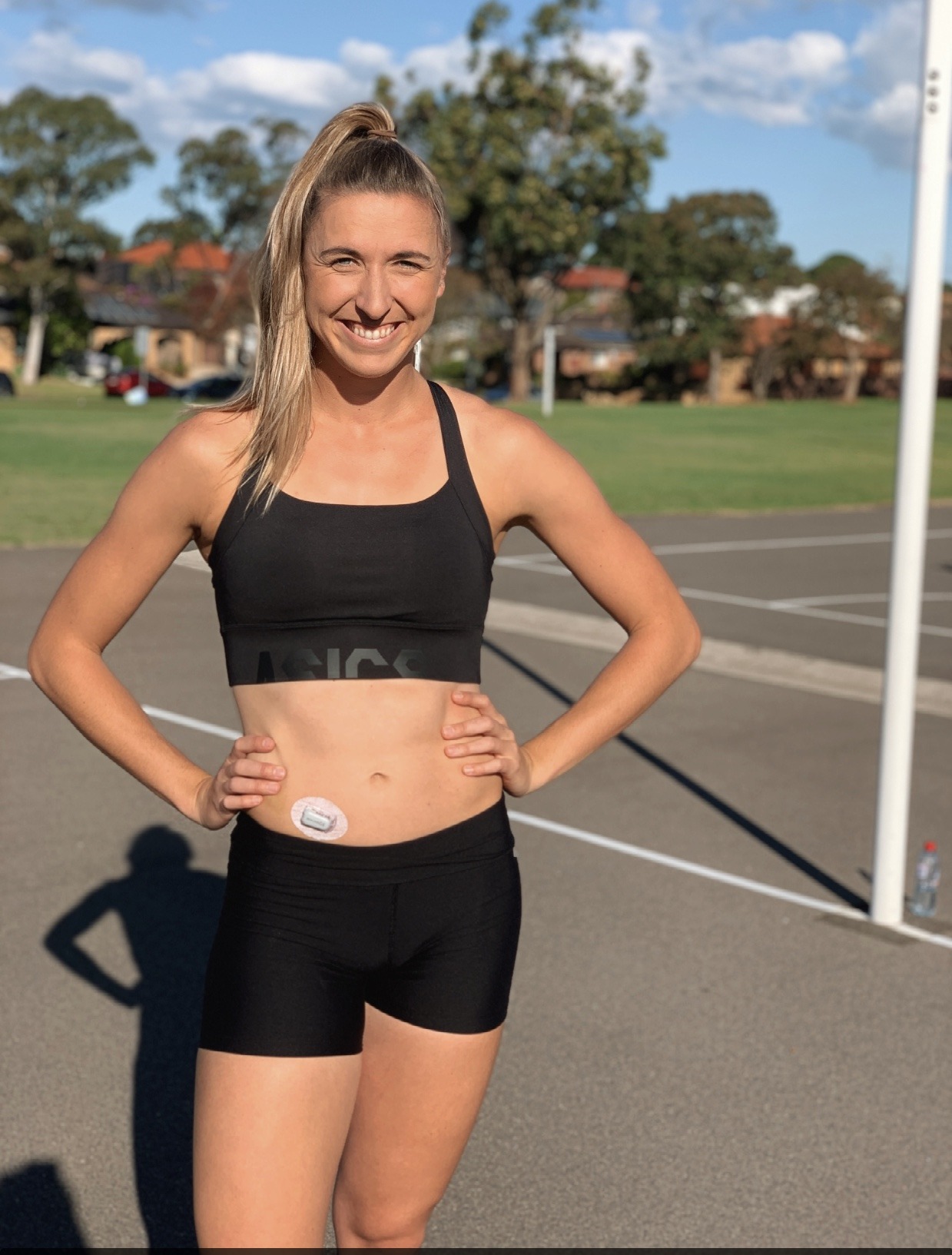
Q. How does T1D affect your day-to-day off the court?
There have been many occasions where the alarms have helped with my day-to-day management as well. Living with T1D, it can be stressful waking up in a pool of sweat and wanting to eat your whole kitchen due to an overnight hypo. Since wearing Dexcom CGM, I have been woken up in the middle of the night because I had overestimated my insulin dose. I was alerted and I was able to fix it before my levels went too low. Dexcom CGM gives me more confidence around sleeping, especially after a late-night training session when my levels can drop suddenly and since wearing Dexcom, I have become more confident around day-to-day life as well as it has taken a lot of the guess work around my insulin and food intake, and also a lot of the exhaustion and stress out of living with unwanted high or low blood sugar levels.
Q. And how did you originally find out about Dexcom CGM?
Diabetes was a whole new world for me, so I just tried to keep it as simple as possible and use what was provided to me at my first diabetes education session. It wasn’t until my friend (I call her my ‘diabetes mum’) mentioned the Dexcom G5 Mobile to me, as her 12-year-old daughter used it at the time. She spoke so highly of it, and I knew it was something I would love to try.
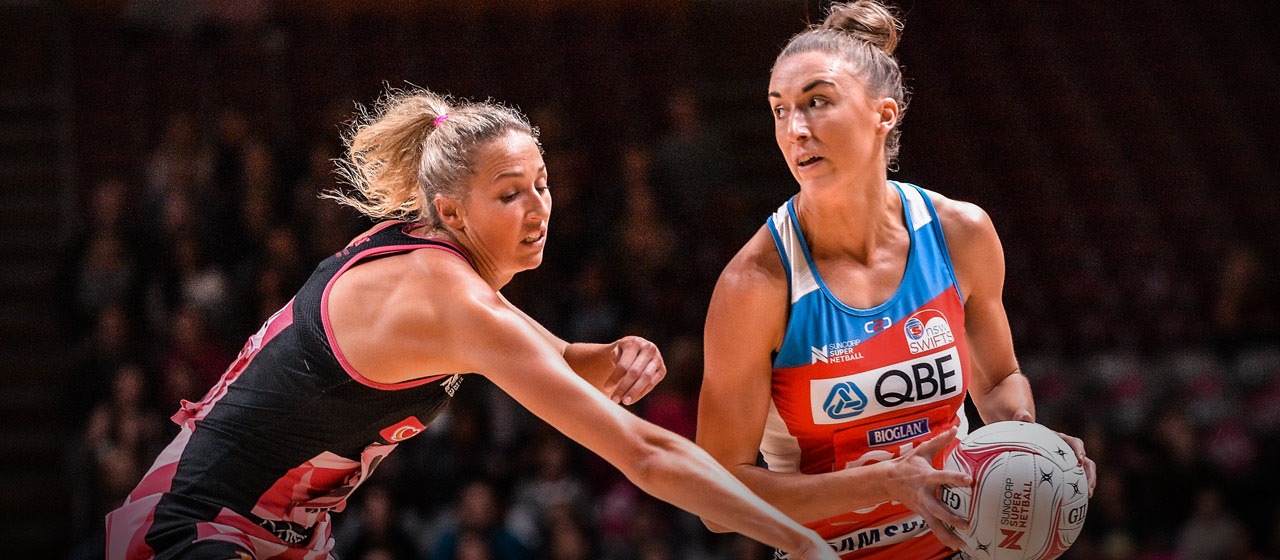
Q. What was your first impression of Dexcom?
I loved it straight away! Before trialling Dexcom CGM, I would get lazy and just hope my levels were in the right range, but now I know for sure without it being a ‘chore’. I have loved the convenience of wearing Dexcom and not having to prick my fingers so often.* Not only this, I have learnt so much about myself and how my body responds to different foods and training.
Q. Do you have any tips for others looking into CGM?
I found that it took a few days to adjust to, but it didn’t take long to fall in love with Dexcom.
I love the weekly graph feature! I would say I am a very goal-driven athlete and person in general, so I love having targets and looking at my summary reports to understand where I can improve and learn from potential patterns, to keep me focused and on track with my diabetes management. Overall, I feel much more in control with Dexcom and ultimately I’m able to perform at my best.
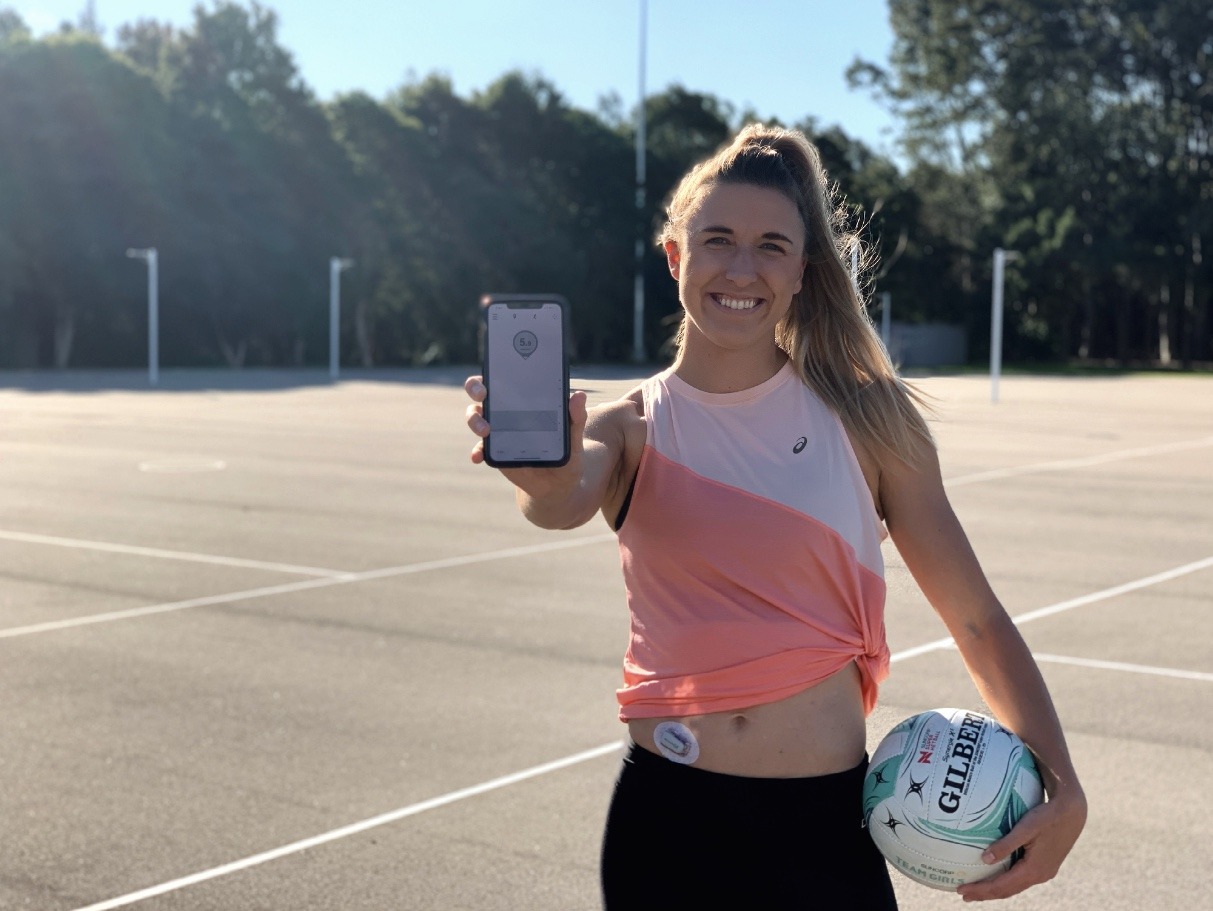
* If your glucose alerts and readings from the G6 do not match symptoms or expectations, use a blood glucose meter to make diabetes treatment decisions.
Sarah is an Australian Dexcom Warrior. For more information on the Dexcom Warrior Program, please click here
ALWAYS READ THE LABEL AND FOLLOW THE DIRECTIONS FOR USE. Read the warnings available on amsldiabetes.com.au/resources before purchasing. Consult your healthcare professional to see which product is right for you.
Testimonial Disclosure
This testimonial relates to an individual’s response to treatment with our products and has been edited to ensure it is consistent with the products’ indication(s). The testimonial does not provide any indication, guide, warranty or guarantee as to the response other persons may have to the treatment. Responses to treatment with our products may differ. It is important to consider individual circumstances and consult with your healthcare professional before considering any changes to your diabetes management.
Dexcom, Dexcom G6 and Dexcom G5 Mobile are registered trademarks of Dexcom, Inc. in the United States and/or other countries.
“I am a very goal-driven athlete and person in general, so I love having targets and looking at my summary reports to understand where I can improve and learn from potential patterns, to keep me focused and on track with my diabetes management. Overall, I feel much more in control with the Dexcom and ultimately I’m able to perform at my best.”



